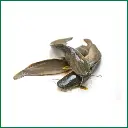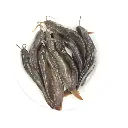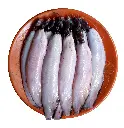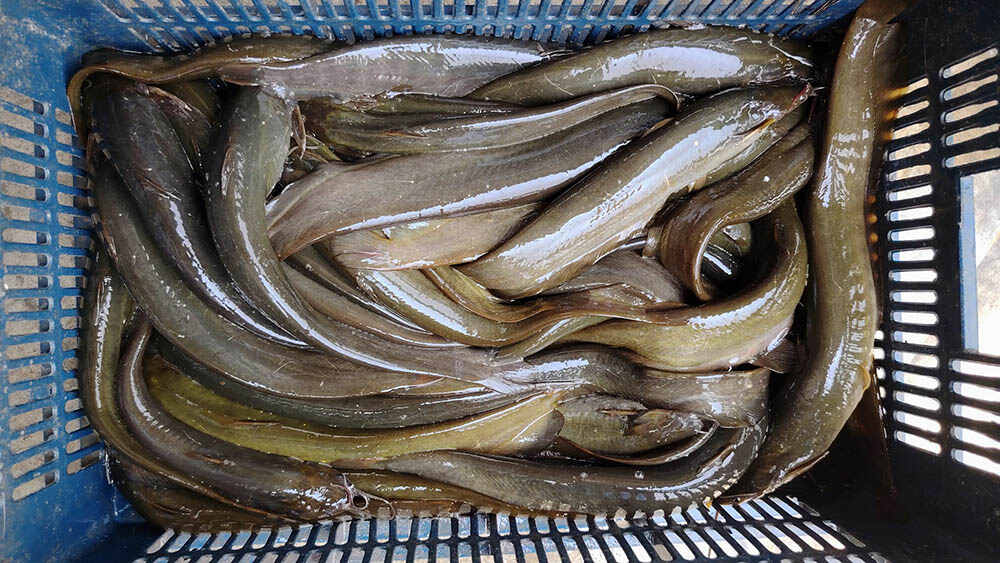Product Attributes
From sources to market, delivering premium products straight to your business.
Scientific Name
Heteropneustes fossilis
Product State
Fresh or frozen whole Shing fish, or fillets
Grade
A
Origin
Freshwater rivers, ponds, and marshes of Bangladesh
Country of Origin
Bangladesh
Harvest Season
Year-round, with peak season from June to September
Appearance
Elongate and compressed body; scaleless; head is depressed. Color is typically dark brownish-gray or purplish-brown. Features four pairs of barbels (whiskers).
Taste Profile
Delicious, sweet, and mild taste. The flesh is firm with less fat and fewer spines than many other catfishes.
Average Weight
300–800 grams per fish (fillets typically 100–300 grams each)
Shelf Life
2–3 days fresh at refrigeration temperatures, up to 6 months frozen
Storage Condition
0–4°C for fresh, -18°C or lower for frozen
Leadtime
5–7 working days after order confirmation
Our Honest Product review
- The Medicinal Advantage: Shing is considered a therapeutic superfood fish due to its concentration of highly bioavailable minerals, especially Iron and Calcium, making it a key component in post-illness or deficiency recovery diets.
- Live Market Premium: Like other "Jiol" (live) fish, its ability to survive out of water allows it to be sold live, which guarantees freshness and commands a higher market price.
- Safety Hazard: The presence of the venomous pectoral spines is a significant handling risk. Processors and home cooks must be cautious when handling the live or freshly killed fish.
- Consumption Quality: It is well-preferred because it is a lean fish with high digestibility and minimal troublesome bones, offering a clean, palatable texture unlike some fattier, mud-dwelling catfishes.
Usage
- Medicinal Diet: Highly recommended in traditional medicine (Ayurvedic/local folk medicine) for the sick and convalescents due to its high Iron and Calcium content. It is specifically prescribed for patients suffering from anemia and is believed to increase physical energy and strength.
- Culinary Use: Used in curries, stews, and traditional dishes across the Indian subcontinent. Its firm flesh holds up well to cooking.
- Aquaculture: Highly suitable for farming in ponds, ditches, and swamps (can tolerate low oxygen and high stocking densities), making it a high-value aquaculture commodity.
- Ornamental Trade: Sometimes exported for the aquarium trade.
Certification
Complimentary Product Certificates
- Certificate of Origin
Product Certificates available on request
- Veterinary or Health Certificate
Packaging & Shipping
Packaging Options
- Available in bulk (5kg, 10kg) or smaller consumer-sized packaging (500g, 1kg, 2kg)
- Vacuum-sealed or individually packed for better preservation
- Custom packaging and labeling available on request
Shipping & Export Info
- Minimum Order Quantity: 1000 kg.
- Shipping Options: Sea Freight (preferred), Air Freight for quick orders.












